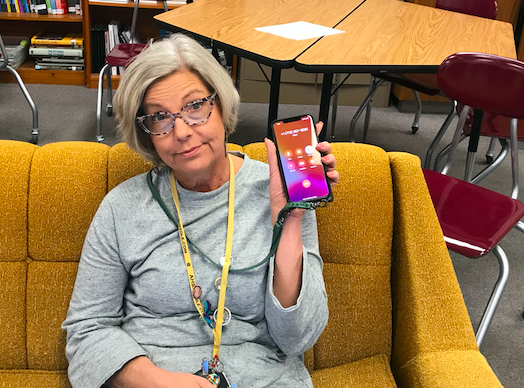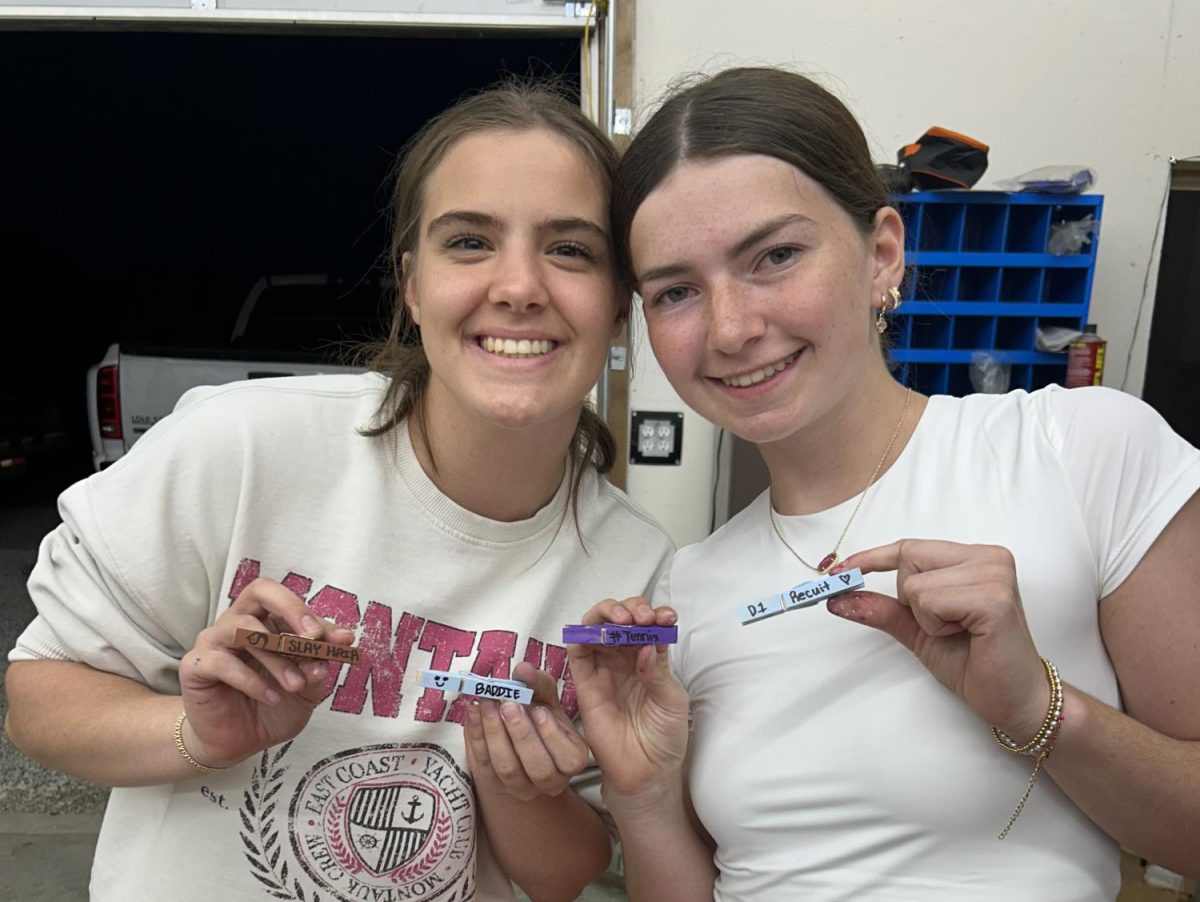Scram Spam: A Staff Editorial
This one’s for you, David Cunningham.

Adviser Allison Berryhill showcases yet another spam phone call during class. Callers can spoof phone numbers to appear like they are coming from in town.
March 6, 2020
As a staff, we are sick and tired of spam phone calls disrupting our productive work time. Our class time is precious, and we need every moment to bring the news to your screen. What we don’t like on our screen is an unknown caller targeting us to sell life insurance and back braces.
According to New York Magazine, 50 percent of all phone calls are spam-related. The Washington Post reflects this, stating 26.3 billion phone calls received in the United States are robo-calls each year. According to Robo Killer, there are illegal and legal telemarketing methods. A legal spam phone call is your textbook telemarketer. They are not trying to scam you, they are advertising their company and its services. However, illegal robo-calls are any pre-recorded message that you have given no permission to receive. The voice on an illegal spam phone call is human and interacts with their prey. The goal of an illegal spam phone call is to steal a person’s money or identity, if not both.
“I could be a millionaire if I did scam calls,” sophomore Drew Engler said.
Spam phone calls are almost a daily occurrence in room 408. On Tuesday, March 3, at 1:18 p.m., a man who identified himself as “David Cunningham” interrupted our sixth-period paper class to offer our very own Camryn Church an all-expenses-paid trip to Jamaica. Congrats, Cam!
However, we have reasons to believe he had ulterior motives in calling. His request for personal information was denied by three different people. That’s right David CunningSPAM, you were on speaker phone.
Like any well-oiled machine, AHS journalism had three people responding to his questions. One person was across the room answering him in Spanish. Another was on the couch commentating. The third was also answering David CunningSCAM in English.
David CunningMAN was an expert at his craft. He greeted Camryn as a friend, urging her to “come closer to the phone” when he heard classmate number one speaking from across the room.
We didn’t fall for the scam. Not so Cunning, are you, David?
As a class, we elected to hang up the phone.
Two minutes later, we called him back. How do we know he was a scammer? His number went straight to voicemail. This conniving scam is one of many attempting to ruin lives and credit scores. These calls during class derail our trains of thought.
Exhibit B: the back-brace robo-call.
On Thursday, March 5, at 1:02 p.m., adviser Allison Berryhill received a call from an unknown number with the potential spam warning. The robo-call detailed how she qualified for a pain-relieving back brace. It also suggested she punch in numbers on the phone keypad, though our staff was too quick for that, shutting the call down.
These ever-present disruptors are annoying. As a staff, we are over it.









